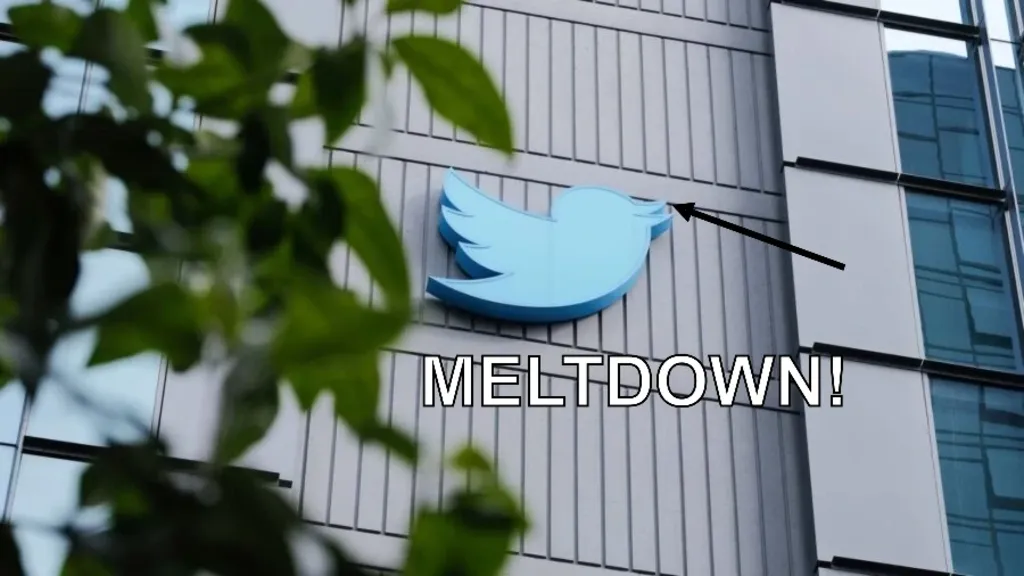
Yesterday, Twitter's live streaming event, which was set to feature Florida Governor Ron DeSantis' presidential bid announcement, was met with unexpected disruption. The platform faced significant technical issues, causing the event to crash as hundreds of thousands of users enthusiastically logged on to hear DeSantis declare his intentions for the White House.
Twitter Livestream Crash
The event was held on Twitter Spaces, the platform's audio chat room feature. It was hosted by none other than Twitter's own owner, tech billionaire Elon Musk, and seasoned tech entrepreneur David Sacks. However, soon after the event began, users experienced recurring disruptions with the sound, which intermittently cut in and out during the initial minutes.
At one stage, Sacks remarked, "We’ve got so many people here that we are kind of melting the servers." It was a testament to the sheer number of users—over 500,000—who had joined the event, pushing Twitter Spaces to its technical limits. Consequently, the event had to be abruptly ended and restarted, which delayed DeSantis' critical announcement by almost thirty minutes. Upon relaunching from Sacks’ account, the event saw a decline in listenership, with approximately 250,000 users tuning in.
Ongoing Twitter Glitches
Since Musk's takeover of Twitter late last year, the platform has struggled with numerous outages and technical glitches. In an ambitious bid to slash costs, Musk implemented sweeping staff reductions, affecting numerous technical and other personnel. Furthermore, he reduced Twitter's server capacity, a move that has led to a series of service interruptions, affecting users' ability to access the site, view images, read tweets, and more. Various other problems have also emerged, such as issues with the app's two-factor authentication feature, tweet reply order, and old tweets reappearing in users' feeds or mentions.
During Wednesday's event, both Musk and Sacks conceded that Twitter's server capacity limitations played a significant role in the streaming hiccups. "I think you broke the internet there," joked Sacks, upon the event's relaunch. They also suggested that Musk’s mammoth follower count—exceeding 140 million—might have amplified the issue. In Sacks’ words, "when you multiply a half-million people in a room by an account with over 100 million followers, which is Elon’s account, I think that creates just a scalability level that was unprecedented."
Despite the technical difficulties, Sacks attempted to put a positive spin on the situation, saying, "You know you’re breaking new ground when there's bugs and scaling issues."
Twitter Spaces not Ready for Large Scale Use
Indeed, Twitter's Spaces product may not have been designed to accommodate such massive audiences, with most Spaces events hosting—at most—a few hundred listeners simultaneously. A former Twitter employee, familiar with the development of Spaces, described it as a "prototype" and a "janky" tool. They further pointed out that Spaces was effectively a never-ending beta test, relying on a combination of Twitter's existing infrastructure and Amazon Web Services servers, components not inherently designed to cope with Twitter-scale traffic.
Twitter's acquisition of video streaming platform Periscope in 2015 was also implicated in the service interruption. According to the same ex-employee, Twitter Spaces was developed on Periscope's existing infrastructure rather than being fully integrated with Twitter, a likely factor in Wednesday's technical glitches.
Despite the chaotic start, the event continued for nearly an hour after being restarted. In a note of optimism, Sacks said, "It's not how you started, it's how you finish and we finished strong," signaling that despite the bumps in the road, Twitter remains committed to improving its platform for large-scale events.
Technomancer is a science and tech enthusiast who enjoys writing about software and AI and other tech topics.
